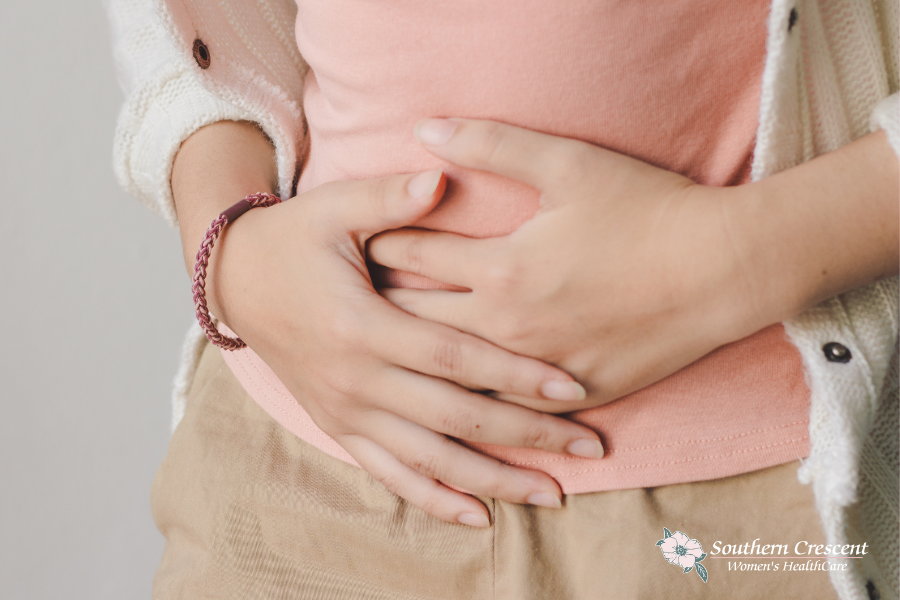Have Your Estrogen Levels Declined?
Declining estrogen levels are usually associated with menopause. But menopause doesn’t happen all at once. In fact, it takes years from the first signs of changing estrogen levels to full menopause.
The years leading up to menopause involve a transition stage called perimenopause. Just like your early teenage years and puberty, this time of transition can be confusing and cause different, sometimes problematic symptoms.
At Southern Crescent Women’s HealthCare in Fayetteville, Newnan, and Stockbridge, Georgia, our board-certified OB/GYN providers help women prepare and transition through perimenopause and menopause. We also know that it can be difficult to tell when a decline in estrogen begins.
So we’ve created this guide to help you understand more about perimenopause and the signs of declining estrogen levels.
Understanding declining estrogen levels
Estrogen is a hormone produced by your ovaries. While there are a number of injuries and health conditions that can cause a decline in estrogen levels, the most common reason is advancing age.
As you approach the age of menopause, it’s normal to experience a decline in estrogen production. This time of transition, which may include surges and declines in estrogen, is called perimenopause. You stay in this transition stage until you stop menstruating for at least 12 consecutive months.
There’s no set age for women to enter this transitional period. However, on average, women begin perimenopause sometime in their late 40s. It’s possible, however, to experience symptoms in your late 30s or not until your early 50s.
Most women spend about 4 years in perimenopause before officially entering menopause. In the United States, the average age of menopause is 51, though many factors, such as genetics, medical history, stress, certain medications, and lifestyle factors can trigger menopause at any age.
Signs of declining estrogen levels
Declining estrogen levels can cause a wide range of symptoms. But although every woman experiences declining estrogen levels differently, there are some common signs you can look for, including the following:
Irregular periods
You may experience periods that are longer, shorter, heavier or lighter, and you may skip periods or have periods that come very close together.
Painful sex
Estrogen plays a key role in vaginal lubrication, and when levels decline, it can trigger vaginal dryness, which can lead to painful intercourse.
Hot flashes and night sweats
More than two-thirds of women experience these sweaty symptoms as a result of changes in estrogen levels, and when they happen at night, they can interrupt sleep.
Mood changes
Depression, increased irritability, and mood swings can result when your hormone levels change.
Cognitive troubles
When estrogen levels change, it can lead some women to experience issues like brain fog, difficulty concentrating, forgetfulness, and cloudy thinking.
Weaker bones
Estrogen plays a key role in bone health, and as levels decline, you may experience bone loss and an increased risk of developing osteoporosis.
Although declining estrogen levels are a natural part of the female reproductive cycle, it doesn’t mean you have to live with troublesome symptoms. The providers at Southern Crescent Women’s HealthCare can recommend different treatments based on your needs and unique symptoms.
To learn more about perimenopause and menopause, book an appointment online or over the phone with Southern Crescent Women’s HealthCare today.
Do You Know the 3 Stages of Menopause
Do You Know The 3 Stages of Menopause? Menopause is a natural transition in a woman’s life, marked by three key stages: perimenopause, menopause, and postmenopause. Perimenopause often begins in the mid to late 40s, lasting around four years, and is characterized by fluctuating estrogen levels that can cause irregular…
HPV Vaccination: Your Shield Against Cervical Cancer
HPV Vaccination: Your Shield Against Cervical Cancer Human Papillomavirus (HPV) is a common sexually transmitted infection that can lead to cervical cancer. Fortunately, the Gardasil®9 vaccine offers powerful protection against HPV and its potentially life-threatening consequences. The importance of HPV vaccination cannot be overstated. It protects against nine types of…
Endometriosis: The Silent Struggle Affecting 1 in 10 Women
Endometriosis: The Silent Struggle Affecting 1 in 10 Women Understanding Endometriosis: Symptoms, Risks, and Treatment Options Endometriosis is a chronic condition affecting 1 in 10 women of reproductive age. It occurs when tissue similar to the uterine lining grows outside the uterus, causing pain, inflammation, and scarring. Common symptoms include…




